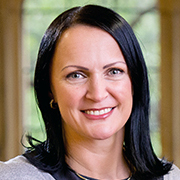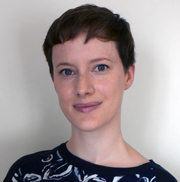Summer Intensive: The History of News from Street Ballads to Social Media
What is news and how does it shape our understanding of the world? At a moment in which misinformation and "fake news" are matters of serious concern, studying the history of news can help us to better understand the stakes of recent changes in the media landscape.
About the course
From handwritten newsletters and ballads sung on the street to printed newspapers and telegraphic dispatches; from coffeehouses and reading rooms to radio broadcasts and social media - this Summer Intensive considered how changes in technology, politics, and culture have transformed the production and circulation of news. The course examined recurring debates about press freedom, access to information, the proper role of journalists, and the effects of news consumption on individuals and society.
The Faculty of Arts Community Education programs provide a unique opportunity to delve into a particular subject, learn about it from expert presenters, and debate its biggest questions with a room full of like minds. The one-week course structure of our Summer Intensives enables a more immersive experience with the chance to engage in a sustained conversation across sequential sessions.
Image: Frank Leslie’s Illustrated Newspaper, September 3, 1881.
Session 1: The Origins of News
9.30am-12.00pm Monday, 14 January 2019
Our course will begin in early modern Europe (1500-1800), when the invention of printing and the development of postal networks changed the way news was exchanged and sold to the public. Our first session will emphasise the variety of oral, manuscript, and printed news, and include a special presentation on ballads by Dr Una McIlvenna.
Session 2: The Rise of the Newspaper
9.30am-12.00pm Tuesday, 15 January 2019
How did the newspaper become such an important medium for the exchange of news and political commentary? This session will explore the causes and consequences of the proliferation of newspapers in Enlightenment-era Europe and North America. We will be joined by PhD researcher Jean McBain for a discussion of historical debates about press freedom and its limits.
Session 3: Politics, Technology, and the Experience of News
9.30am-12.00pm Wednesday, 16 January 2019
Focusing on the nineteenth century, this session will consider how a combination of political, economic, and technological changes affected the cultural experience of news. Topics include changes in law and government policy, the spread of the telegraph and newsrooms, the development of visual news, and the "tabloidisation" of the mass press. Professor Megan Richardson from Melbourne Law School will join this session to offer her expertise on intellectual property law.
Session 4: The View from the Internet Age
9.30am-12.00pm Thursday, 17 January 2019
The spread of the Internet and social media have transformed the business and culture of news. Our course will conclude by considering the challenges and opportunities created by recent shifts in the media landscape. For this final session, Associate Professor Andrew Dodd, Director of the Centre for Advancing Journalism at the University of Melbourne, and Dan Stinton, Managing Director of Guardian Australia, will join the course for a round-table discussion on the current state of the media and the future of news.
Supporting Australian Journalism
The Faculty of Arts is delighted that Dan Stinton, Managing Director of Guardian Australia will be a part of this course. In 2016, the Faculty of Arts and Guardian Australia came together to establish the Guardian Civic Journalism Trust. The Trust supports journalism projects that advance public discourse and citizen participation in issues such as the environment, Indigenous affairs, human rights, inequality and governance and accountability. It also invests in the next generation of journalists by giving students the skills they need to become world class reporters in a changing environment.
Course leader
Dr Will Slauter

Dr Will Slauter received a PhD in history from Princeton University and taught at Columbia University and Florida State University before relocating to France. He currently teaches at Université Paris Diderot and is a member of the Institut universitaire de France. His research interests include the history of authorship and publishing, the history of journalism, and the history of copyright law. He is the author of Who Owns the News? A History of Copyright (Stanford University Press, 2019).
Guest experts
Dr Una McIlvenna

Dr Una McIlvenna is Hansen Lecturer in History at the University of Melbourne. She is a literary and cultural historian who works on the history of ballads and the tradition of singing the news, from the early modern period through the nineteenth century. She is currently completing a monograph titled Singing the News of Death: Execution Ballads in Europe 1550-1900, and has published articles on news-singing in Past & Present, Renaissance Studies, Media History, and The Huntington Library Quarterly.
Jean McBain

Jean McBain is a PhD candidate in history at the University of Melbourne, working on the early eighteenth century English debate over the liberty of the press. Her thesis challenges the accepted timeline for the development of radical accounts of press liberty. Jean has published on the periodical writings of Delarivier Manley and Daniel Defoe. She has recently published a co-authored article on the 'affective typography' of Jonathan Swift's latter poetry.
Professor Megan Richardson

Professor Megan Richardson is a Professor of Law, Co-Director Centre for Media and Communications Law, and Director Intellectual Property Research Institute of Australia at the University of Melbourne. Her books include Fashioning Intellectual Property: Exhibition, Advertising and the Press 1789-1918 (with Julian Thomas, Cambridge University Press, 2012). (Photo: Bernard Lyons)
Associate Professor Andrew Dodd

Associate Professor Andrew Dodd is the director of the Centre for Advancing Journalism at the University of Melbourne. He has been a journalist for 30 years, working in radio, television, print and online media. He was a broadcaster at ABC Radio National where he presented many of the network’s programs and launched the long running Media Report program. He was a reporter on the 7.30 Report and a business, media and feature writer for The Australian newspaper. He has a PhD in history from the University of Melbourne and was formerly the director of the journalism program at Swinburne University.
Dan Stinton

Dan Stinton is Managing Director of Guardian Australia. In this role, he is responsible for the strategy, business planning and leadership of all commercial and operational aspects of The Guardian Australia. Prior to joining the Guardian, he was Head of Digital at Seven West Media.
A summer intensive course providing an overview of important trends in the history of news over the last 500 years.